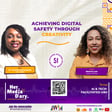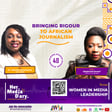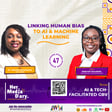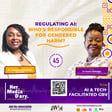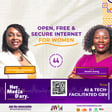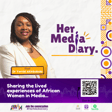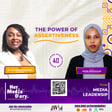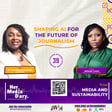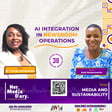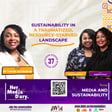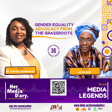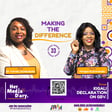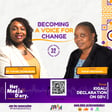
Her Media Diary Episode 46: “Curating Datasets against AI-Facilitated GBV” with Mwende Mukwanyaga
Mwende is the Co-convener of the AI Salon by Webworks, with expertise in AI ethics, data journalism, ethnographic research, and dataset building. She also specialises in critiquing models and systems for bias, and teaching media and institutions how to adapt to AI in a meaningful and responsible manner.
In this episode, she joins us to talk about tech-facilitated GBV, the risks of AI-generated harm, and what it means to reclaim data with care and creativity.
Mwende reminds us that data isn’t neutral; it’s shaped by who gets counted and who gets erased. And as generative AI becomes more powerful, we need storytellers like her, brave enough to collect what’s missing, and wise enough to tell it with care
Subscribe, leave a review and share this episode with someone who needs to hear it.
If you’d like to join an episode of this podcast, send an email to yemisi@africanwomeninmedia.com. Or visit our website at www.hermediadiary.com
Subscribe and follow Her Media Diary on all your favourite podcast platforms, Also, tune in to our partner radio stations from anywhere across Africa. And don’t forget to join the conversation using the hashtag #hermediadiary.
